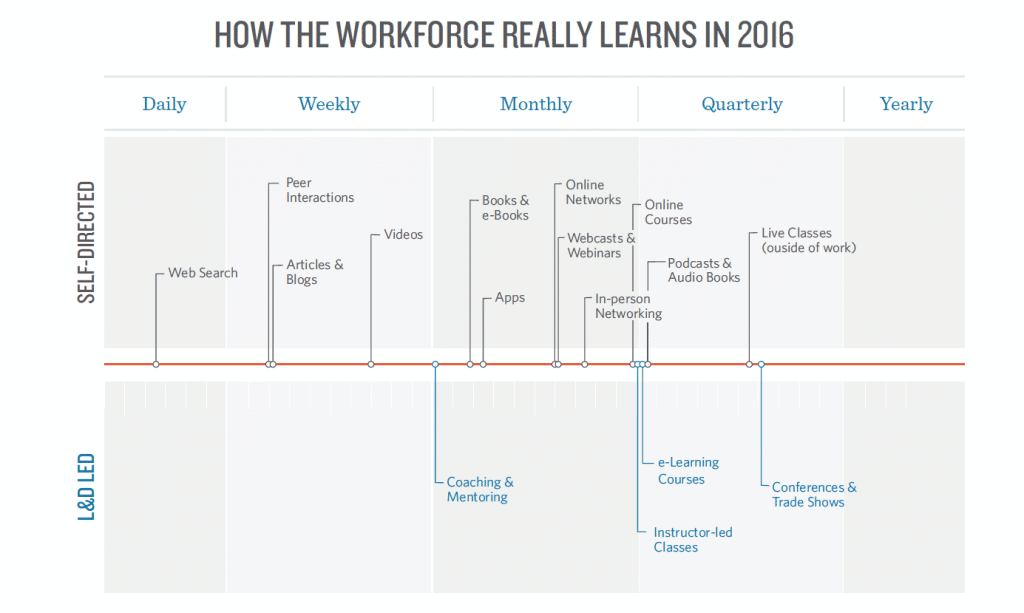What do Uber, Airbnb, Facebook, Tripadvisor, and eBay have in common? They are what Harvard Business Review refers to as network orchestrators.
Network orchestrators create value by connecting a network of peers; making things work together while solving the needs of the user in new and innovative ways.
Airbnb doesn’t own a single hotel, but they’ve created the technology that connects hosts with travelers and provide the tools to make the process as simple as possible. To accomplish this, Airbnb is an open system with a long list of integrations including: dozens of local payment systems, Facebook, Google maps, and mobile communication tools, all with a seamless user experience.
By doing this, Airbnb is revolutionizing the hotel industry. Uber is having the same effect on the transportation industry. This shift to open systems that can connect people and tools is happening across industries, and it’s coming to the learning industry as well.

Lots of traditional (and new) learning solutions claim to be the one-stop shop for all learning, but today, the whole idea of a one-stop-shop for all learning doesn’t make sense, for organizations or for people. People today are literally learning all over the place – in live classrooms and online, on our own and via other people, and through content as well as experiences. This chart highlighting new research shows all the diverse places people spend their time learning.
No one actually relies on just one provider or one medium for all their learning and development. To make learning effective, employers should pick and choose, mix and match, the best of all of it.
Your LMS likely contains some excellent custom courses and maybe lots of informal resources, too. You’re probably paying for great training programs from a handful of preferred providers, while new learning content pops up all the time, increasingly from non-traditional sources. In fact, there are thousands of sources of content now, including podcasts, videos, books, and online articles. No matter how much content each one of these providers has, it won’t be the only place that people go for learning.
These days, learning happens all over the place with nothing to connect it all, until now. Degreed is connecting all the world’s best learning experiences – systems, content, and people – so they work better together. With Degreed you can:
- Connect your internal L&D solutions to the world’s largest collection of paid and open-source learning tools – 3M+ classes, courses, videos, articles, books, podcasts and more from 1,300+ providers, plus any other content partners your organization values.
- Connect employees to the content they need, when they need it, with playlists of personalized recommendations, goals, and groups.
- Connect employees with experts and peers both inside and outside your organization.
- Connect employees to more choices for learning with FlexED, the first flexible spending account for learning.
- Connect your organization to insights into all the learning that is happening in your organization, beyond corporate classrooms and LMSs.
As learning shifts to a more open system style with Degreed, L&D leaders have the opportunity to both directly and indirectly create true learning cultures within their organizations. By providing the tools that feed people’s curiosity and real learning habits, L&D, managers and employees can share the responsibility of learning, making it more effective and empowering.
Interested in connecting all the learning happening in your organization? Visit get.degreed.com or request a demo.

